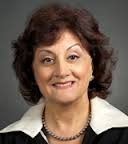ATD Blog
Coaching Is a Cornerstone of Talent Development
Tue Oct 30 2018


Coaching is a cornerstone of professional development, and many talent development professionals have discovered that they need to add coaching to their skill set. But how?
With more than 25 years of experience, Dr. Virginia Bianco-Mathis is considered a thought leader in this field. She is the co-author of Everyday Coaching and Organizational Coaching, and facilitates the ATD Coaching Certificate. As part of our series of interviews with talent development experts to mark ATD’s 75th year, Eliza Blanchard, a content and community development specialist for ATD, asked Dr. Bianco-Mathis to share her insight on why coaching works, coaching challenges and best practices, and trends that are shaping the future of executive coaching.
For starters, she explains that coaching is effective because it’s personal. “If I’m sitting down with you as your coach, we’re talking about what particular skills and behaviors you might need to add to your toolkit to get closer to what you would like to achieve. And we’re going to work on just that for you in a way that makes sense for you,” she says.
What’s more, she notes that the pair can shift gears, based on what becomes important to the coachee’s career and growth, not because it’s the next thing in a lesson plan.
This ability to shift gears during the coaching relationship is the key to keeping coaches from falling into the trap of “always telling.” Indeed, Dr. Bianco-Mathis says one of the best pieces of advice she ever received from a coach was, “Don’t just give advice; remember to advocate.” In other words, a coach’s job is to offer up ideas, but to also be sure to ask the coachee how they can apply those ideas to their own work. She reminds coaches to always “bring the coachee back into the conversation and put them into the action.”
Listen to the podcast for more advice from Dr. Bianco-Mathis on how to apply a coaching mindset to your work and career.
